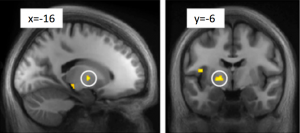Jul
31
2014
 One of the strategies of denying established science is to “just ask questions” (affectionately known as JAQing off). The point is to undermine the science by probing for things that don’t appear to make sense, but not in a sincere attempt to understand. Rather, the idea is to ask questions that have already been answered, or that are based upon false assumptions or straw-man distortions of the science.
One of the strategies of denying established science is to “just ask questions” (affectionately known as JAQing off). The point is to undermine the science by probing for things that don’t appear to make sense, but not in a sincere attempt to understand. Rather, the idea is to ask questions that have already been answered, or that are based upon false assumptions or straw-man distortions of the science.
Recently I was sent this article by Fred Reed in which he asks questions about evolution. He writes:
To this end, I submit a few questions which have strained my admittedly paltry understanding for some time. They are not new questions, but could use answers. I agree in advance to accept his answers (if any be given) as canonical.
The “his” refers to John Derbyshire, who is an author and journalist. I am not sure why Reed directs his questions toward him or would consider his answers “canonical.”
I don’t know how sincere Reed is in his questions, but I would suggest if they are sincere that he read a few books by biologists. Answers to all his questions are out there, or at least the information necessary to determine why his questions are naive.
Since I like answering questions as a format for explaining complex science, I thought I would take up Reed’s questions myself.
(1) In evolutionary principle, traits that lead to more surviving children proliferate. In practice, when people learn how to have fewer or no children, they do. Whole industries exist to provide condoms, diaphragms, IUDs, vasectomies, and abortions, attesting to great enthusiasm for non-reproduction. Many advanced countries are declining in population. How does having fewer surviving children lead to having more surviving children? Less cutely, what selective pressures lead to a desire not to reproduce, and how does this fit into a Darwinian framework?
Reed’s first question illustrates what I mean. There is no direct answer to his question, because the question itself contains false premises. His question cannot be answered, only deconstructed.
Continue Reading »
Jul
29
2014
 In a recent study, scientists looked at the brain with high resolution fMRI scanning while they showed subjects pictures. Following each picture was a painful electric shock, or a money reward, or no response, or a random response. Subjects quickly learned which pictures would be followed by which stimuli – positive, negative, neutral, or unpredictable.
In a recent study, scientists looked at the brain with high resolution fMRI scanning while they showed subjects pictures. Following each picture was a painful electric shock, or a money reward, or no response, or a random response. Subjects quickly learned which pictures would be followed by which stimuli – positive, negative, neutral, or unpredictable.
Scientists do this sort of thing not because they like to torture people but to study the brain’s response. In this case they were particularly interested in a small deep structure called the habenula. What they found, for the first time in humans but consistent with prior animal research, is that the habenula would light up when subjects saw a picture that would be followed by a shock, and the activity in the habenula increased the more certain the subjects were that negative stimuli were following.
The researchers conclude that the habenula is a critical structure for the processing of negative stimuli, in fact it seems to be the hub of the neural network involved in learning to anticipate negative stimuli.
Continue Reading »
Jul
28
2014
 Sometimes I just have to indulge my childhood fascination with all things dinosaur. Actually, paleontology in general is one of my favorite subjects – reconstructing an utterly alien past, including incredible and strange-looking beasts.
Sometimes I just have to indulge my childhood fascination with all things dinosaur. Actually, paleontology in general is one of my favorite subjects – reconstructing an utterly alien past, including incredible and strange-looking beasts.
And of course, one of the most fascinating aspects of the dinosaurs is that, after 165 million successful years on earth, they suddenly went extinct 66 million years ago. What could cause such a catastrophe? When I was in grade school, the textbooks still contained an outdated (and ridiculous) answer – they ran out of food.
Now most people know that the dinosaurs were wiped out by an asteroid, and the event is frequently depicted in movies and popular culture. It is less well known, however, that scientists are still debating this issue.
There is no question that a large meteor slammed into the earth 66 million years ago and caused devastation. We even found the crater, Chicxulub in the Gulf of Mexico. There is also evidence of shocked quartz from the impact, and a layer of iridium from the meteor itself. This event marks the K-T boundary (now called the K-Pg boundary) between the cretaceous and tertiary periods.
Continue Reading »
Jul
25
2014

Where do I even begin? Mike Adams, the self-proclaimed “healthranger” who runs the crank alt-med site naturalnews, has sunk to a new low, even though he was already scraping bottom.
Adams combines the worst CAM propaganda with a blend of conspiracy theories from across the spectrum, while selling supplements and other nonsense. He portrays himself as someone who is engaged in a righteous battle against the forces of evil – so hardly someone who is engaged in rational discourse.
In a recent rant, however, he has become a parody even of himself. This time he is raving about Monsanto and GMOs, writing:
Monsanto is widely recognize (sic) as the most hated and most evil corporation on the planet. Even so, several internet-based media websites are now marching to Monsanto’s orders, promoting GMOs and pursuing defamatory character assassination tactics against anyone who opposes GMOs, hoping to silence their important voices.
Continue Reading »
Jul
24
2014
When someone looks at me and earnestly says, “I know what I saw,” I am fond of replying, “No you don’t.” You have a distorted and constructed memory of a distorted and constructed perception, both of which are subservient to whatever narrative your brain is operating under.
One of the more dramatic aspects of memory distortion is false memories. These can be completely fabricated memories that are indistinguishable from genuine memories. False memories can involve small details, or entire scenarios. One way to fabricate false memories is with suggestion – just suggesting to someone a detail of an experience they had may cause them to incorporate that detail into their memory of the experience.
The apparent reason for this is that our brains appear to favor consistency over accuracy. Memories are updated to bring them into line with our current knowledge. If we are told that the person was wearing a blue jacket, then our memory might change so that it is consistent with what we now believe to be true.
Continue Reading »
Jul
23
2014
I suppose it was inevitable. In fact, I’m a bit surprised it took this long. SGU Productions, the Society for Science-based medicine, and I are being sued for an article that I wrote in May of 2013 on Science-Based Medicine. My SBM piece, which was inspired by an article in the LA Times, gave this summary:
“The story revolves around Dr. Edward Tobinick and his practice of perispinal etanercept (Enbrel) for a long and apparently growing list of conditions. Enbrel is an FDA-approved drug for the treatment of severe rheumatoid arthritis. It works by inhibiting tumor necrosis factor (TNF), which is a group of cytokines that are part of the immune system and cause cell death. Enbrel, therefore, can be a powerful anti-inflammatory drug. Tobinick is using Enbrel for many off-label indications, one of which is Alzheimer’s disease (the focus of the LA Times story).”
The claims and practice of Dr. Tobinick have many of the red flags of a dubious medical practice, of the sort that we discuss regularly on SBM. It seems that Dr. Tobinick does not appreciate public criticism of his claims and practice, and he wants me to remove the post from SBM. In my opinion he is using legal thuggery in an attempt to intimidate me and silence my free speech because he finds its content inconvenient.
Of course, we have no intention of removing the post as we feel it is critical to the public’s interest. This is what we do at SBM – provide an objective analysis of questionable or controversial medical claims so that consumers can make more informed decisions, and to advance the state of science in medicine.
We also feel it is critical not to cave to this type of intimidation. If we do, we might as well close up shop (which I suspect the Tobinicks of the world would find agreeable). Defending against even a frivolous lawsuit can be quite expensive, but we feel it is necessary for us to fight as hard as we can to defend our rights and the work that we do here at SBM.
Continue Reading »
Jul
22
2014
 To paraphrase Carl Sagan: in one unremarkable galaxy among hundreds of billions, there is an unremarkable star among hundreds of billions of stars in that one galaxy. Around that star revolves a world with life. Some people who live on that world believe they are the center of the universe.
To paraphrase Carl Sagan: in one unremarkable galaxy among hundreds of billions, there is an unremarkable star among hundreds of billions of stars in that one galaxy. Around that star revolves a world with life. Some people who live on that world believe they are the center of the universe.
Sagan nicely puts into perspective how absurd it is to believe, given our current knowledge of the cosmos, that we are the center of all things, either physically at the literal center, or metaphorically as in, we are the most important things in the universe. This is a childish view, held by our ancestors because they couldn’t know any better. Science, as Stephen Gould noted, is partly a process of smashing pillars of human narcissism. Neither the earth, nor our sun, nor our galaxy are at the center of the universe. The universe, it turns out, has no center. Neither are humans at the pinnacle of the evolutionary tree – we are just one twig, and every other twig has just as much evolutionary history behind it as we do.
Humans are certainly the most encephalized species on the planet, with by far the most advanced culture and technology, so we are special in that sense. Every time, however, scientists believe they have nailed down something that is unique about humans, some researcher finds that chimps (our closest cousins), or even other species, can do it too. We are part of the animal kingdom, part of this physical world, the result of natural processes that seem ubiquitous throughout the universe.
Continue Reading »
Jul
21
2014
 Yesterday, July 20th, was the 45th anniversary of Apollo 11 landing on the surface of the moon, and Neil Armstrong and Buzz Aldrin becoming the first and second humans to walk on the surface of another world. This is, to be sure, one of the greatest achievements of the human species.
Yesterday, July 20th, was the 45th anniversary of Apollo 11 landing on the surface of the moon, and Neil Armstrong and Buzz Aldrin becoming the first and second humans to walk on the surface of another world. This is, to be sure, one of the greatest achievements of the human species.
There are those, however, who claim that we never sent astronauts to the moon, that the entire thing was an elaborate hoax by the US, meant to intimidate our rivals with our spacefaring prowess. As is typical of most grand conspiracy theories, they have no actual evidence to support their claim. None of the many people who would have to have been involved have come forward to confess their involvement. No government documents have come to light, no secret studios have been revealed. There is no footage accidentally revealing stage equipment.
What the moon hoax theorists have is anomaly hunting. This is the process of looking for something – anything – that does not seem to fit or that defies easy explanation, and then declaring it evidence that the standard story if false. Conspiracy theorists then slip in their preferred conspiracy narrative to take its place. Sometimes they are more coy, claiming to be “just asking questions” (also known as jaqing off), but their agenda is clear.
Genuine anomalies are of significant interest to science and any investigation, no question. For an apparent anomaly to be useful, however, mundane explanations need to be vigorously ruled out (conspiracy theorists tend to skip that part). Only when genuine attempts to explain apparent anomalies have failed to provide any plausible explanation should it be considered a true anomaly deserving of attention.
At that point the answer to the anomaly is, “we currently don’t know,” not “it’s a conspiracy.”
Continue Reading »
Jul
18
2014
 The Guardian’s headline reads: Clear differences between organic and non-organic food, study finds. While this article was better than most in including some caveats, it was clearly favorable to the conclusions in the study, and failed, in my opinion, to properly put the new study into an informative context.
The Guardian’s headline reads: Clear differences between organic and non-organic food, study finds. While this article was better than most in including some caveats, it was clearly favorable to the conclusions in the study, and failed, in my opinion, to properly put the new study into an informative context.
How does this new study add to the literature looking at the safety and health effect of organic produce vs conventional produce?
First, the study is a meta-analysis of 343 prior studies looking at nutrient content, pesticide, and heavy metal contamination of produce. It is not a collection of any new data. A meta-analysis is very tricky to conduct well – it does not improve the quality of the data going into the analysis, only the statistical power. Further it introduces another layer of potential bias (another researcher degree of freedom) in which studies are chosen for the analysis.
This study used very open criteria, and therefore included more lower-quality studies (likely to be false positive or show the bias of the researchers) than other meta-analyses.
Continue Reading »
Jul
17
2014

In 2013 the European Commission awarded $1.3 billion to a project to simulate the human brain in a supercomputer. While everyone is excited about this prospect, and welcomes the infusion of cash, recently the project has come under public criticism.
More than 180 neuroscientists signed an open letter criticizing the way the project is being managed. The letter states:
“We believe the HBP is not a well-conceived or implemented project and that it is ill suited to be the centerpiece of European neuroscience.”
There appear to be two main points to the criticism – the first is that the money is largely going to computer scientists to create the software that will simulate the human brain. The neuroscientists complain that while the project is being sold to the public as a neuroscience project, in reality it is an IT project.
Continue Reading »
 One of the strategies of denying established science is to “just ask questions” (affectionately known as JAQing off). The point is to undermine the science by probing for things that don’t appear to make sense, but not in a sincere attempt to understand. Rather, the idea is to ask questions that have already been answered, or that are based upon false assumptions or straw-man distortions of the science.
One of the strategies of denying established science is to “just ask questions” (affectionately known as JAQing off). The point is to undermine the science by probing for things that don’t appear to make sense, but not in a sincere attempt to understand. Rather, the idea is to ask questions that have already been answered, or that are based upon false assumptions or straw-man distortions of the science.












